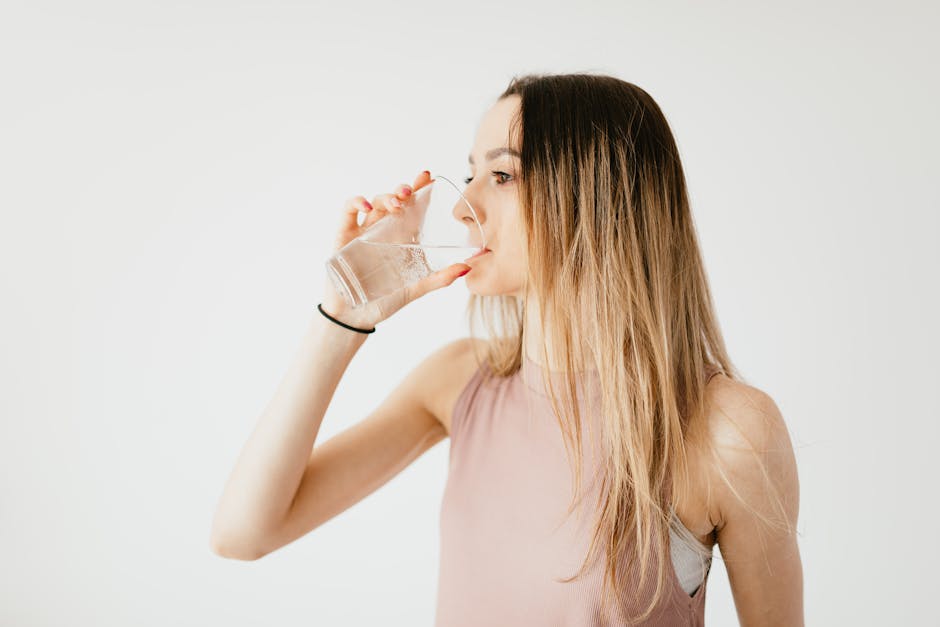Understanding the Importance of Hydration
Water is essential for life, playing a pivotal role in nearly every bodily function. Despite this, many people underestimate the importance of staying adequately hydrated throughout the day. From regulating body temperature and aiding digestion to improving cognitive function and physical performance, hydration is a cornerstone of overall health and well-being. Dehydration, even in its mildest form, can lead to fatigue, headaches, and impaired concentration, while chronic dehydration has more severe implications, including kidney issues and cardiovascular strain. Understanding how hydration affects our bodies and adopting habits to maintain optimal fluid levels can make a significant difference in health outcomes.
The Role of Water in the Human Body
Water constitutes approximately 60% of the human body and serves as the medium for countless physiological processes. It facilitates nutrient transport, flushes out toxins through urine, supports joint lubrication, and helps maintain cellular health. Without adequate water intake, these processes slow down or cease altogether.
Brain function, in particular, is highly dependent on proper hydration. Studies have shown that even slight dehydration can negatively impact mood, memory, and cognitive performance. For example, research published in the journal Frontiers in Human Neuroscience highlights the connection between water intake and improved focus during tasks (frontiersin.org).
Beyond internal functions, hydration also plays a role in physical appearance. Skin elasticity and moisture depend on sufficient water levels within the body. While drinking water won’t eliminate wrinkles or skin conditions entirely, it does contribute to a healthier complexion.
Daily Hydration Needs
The amount of water an individual needs varies based on factors such as age, gender, activity level, and climate. While the classic recommendation of eight 8-ounce glasses per day (about 2 liters) is a general guideline, some people may require more or less depending on their lifestyle.
Physical activity significantly increases water requirements due to sweat loss. Athletes or those engaging in intense exercise should aim to replace fluids lost during workouts by drinking water before, during, and after physical activity.
Similarly, environmental conditions play a role in hydration needs. Hot or humid climates increase perspiration rates, necessitating higher fluid intake to prevent dehydration. The Centers for Disease Control and Prevention (CDC) advises increasing water consumption during extreme heat (cdc.gov).
Signs of Dehydration
Recognizing the symptoms of dehydration early is key to avoiding complications. Mild dehydration can manifest as thirst, dry mouth, or dark yellow urine. As it worsens, individuals may experience dizziness, rapid heartbeat, or confusion.

In severe cases, dehydration can become a medical emergency requiring immediate attention. Symptoms such as sunken eyes, inability to produce tears or sweat despite heat exposure, and fainting indicate critical fluid loss.
- Mild symptoms: thirst, fatigue, dry mouth
- Moderate symptoms: dizziness, rapid heartbeat
- Severe symptoms: confusion, fainting
The Impact of Beverages Beyond Water
While plain water is often touted as the best source for hydration, other beverages contribute as well. Teas, milk-based drinks, and fruit-infused waters provide variety without compromising hydration levels.
Caffeinated drinks like coffee or soda have long been criticized for their diuretic effect; Moderate consumption still contributes positively to daily fluid intake. Research from The American Journal of Clinical Nutrition indicates that caffeinated beverages do not result in significant fluid loss compared to water (academic.oup.com).
Avoid sugary drinks and alcohol when focusing on hydration. These can lead to increased urination and disrupt electrolyte balance rather than replenishing fluids effectively.
Hydration Strategies for Different Lifestyles
Maintaining optimal hydration is not a one-size-fits-all solution but requires adjustments based on personal routines and environments:
- For sedentary lifestyles: Keep a reusable water bottle nearby as a constant reminder to drink throughout the day.
- For active individuals: Incorporate electrolyte-rich beverages like sports drinks during high-intensity activities lasting over an hour.
- For older adults: Age reduces thirst perception; set reminders or use apps that track daily fluid intake.
- For children: Make hydration fun with colorful cups or adding fresh fruit slices to their drinks.
The Importance of Electrolytes
Electrolytes such as sodium, potassium, and magnesium are critical for maintaining fluid balance within the body. These minerals help regulate nerve function and muscle contraction while preventing dehydration-related cramping or fatigue.
Sweat loss during physical exertion drains electrolytes from the body faster than water alone can replenish them. This makes sports drinks or coconut water valuable options post-exercise.
Individuals with certain medical conditions requiring diuretics or who experience vomiting/diarrhea are particularly susceptible to electrolyte imbalances. Consulting with healthcare providers can help identify tailored solutions for these cases.
The Risks of Overhydration
While underhydration garners much attention for its risks, overhydration (or hyponatremia) can also pose serious health threats. This condition occurs when excessive water dilutes sodium levels in the blood below safe thresholds. Athletes engaging in endurance events are most at risk due to consuming large quantities of water without adequate sodium replenishment. Symptoms include nausea, headache confusion (and if untreated) seizures or coma.